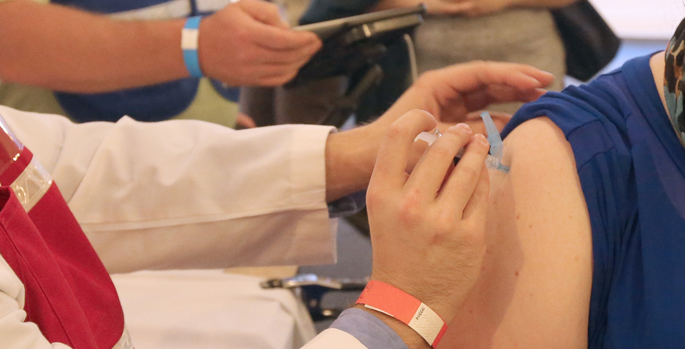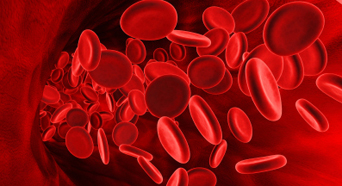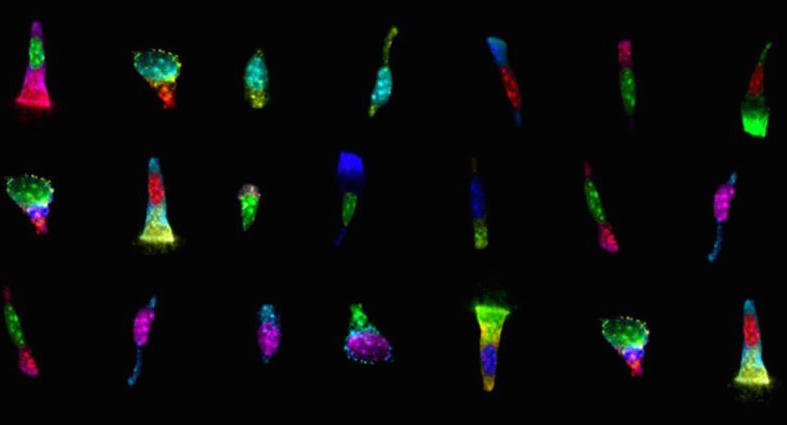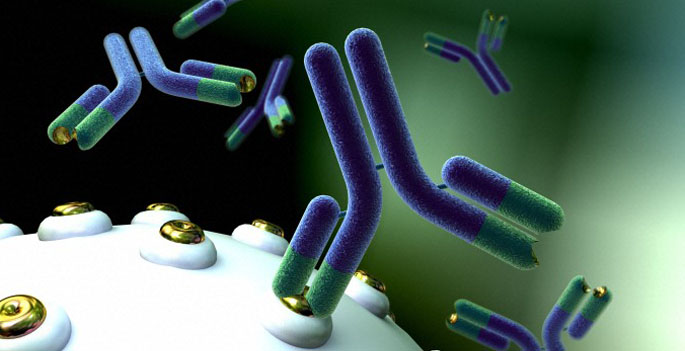NCATS
-

Delirium in the ED
Interventions for delirium in the emergency department setting are needed to preserve patients’ long-term function and cognition, Vanderbilt investigators have found. Read MoreMar 20, 2017
-

Esophageal cancer complexities
New findings that reveal complex interactions in esophageal adenocarcinoma could lead to diagnostic, prognostic or therapeutic biomarkers. Read MoreMar 16, 2017
-

Role for mouth microbes in diabetes?
A higher abundance of certain bacterial species in the mouth appears to reduce the risk of type 2 diabetes, Vanderbilt investigators have discovered. Read MoreMar 8, 2017
-

Mutation raises heart block risk
A newly identified genetic risk factor for heart block after surgery may help guide the course of postoperative care. Read MoreMar 3, 2017
-

Flu vaccine response in older adults
High dose flu vaccine boosts the immune response in older adults by increasing activation of certain immune cells. Read MoreJan 25, 2017
-

Plasmin prevents muscle ‘hardening’ after injury: study
Vanderbilt researchers have made the surprising discovery that the protease plasmin, known for its clot-busting role in the blood, protects soft tissue from turning to bone after severe injuries and certain orthopaedic surgeries. Read MoreDec 8, 2016
-

Blood-brain barrier on a chip sheds new light on “silent killer”
A new microfluidic device containing human cells that faithfully mimics the behavior of the blood-brain barrier is providing new insights into brain inflammation, the silent killer. Read MoreDec 6, 2016
-

Reducing antidepressants’ side effects
Vanderbilt investigators have discovered how antidepressant medicines that block serotonin uptake can increase bleeding risk. Read MoreNov 23, 2016
-

VUMC investigators find pathogens work together to infect host
Pseudomonas aeruginosa and Staphylococcus aureus — two pathogens that frequently co-infect the lungs of patients with cystic fibrosis — appear to cooperate with each other, Vanderbilt investigators have discovered. When pseudomonas is starved for metal by the host, it shuts down the production of factors that would normally kill staph, promoting a co-infection. Read MoreNov 3, 2016
-

Single-cell study of tumor samples
A new method for analyzing cells in fixed biopsy tissues from patients by guide personalized treatment strategies for cancer. Read MoreOct 26, 2016
-

Sleep issues in children with diabetes
Lengthening sleep duration and reducing sleep disturbances in children with type 1 diabetes may improve diabetes outcomes and reduce parental stress. Read MoreOct 24, 2016
-

Preparing for a return of pox
To prepare for the potential of a smallpox return, Vanderbilt researchers are isolating and studying naturally occurring antibodies from the blood of previously infected or immunized people. Read MoreOct 20, 2016
-

Research sheds light on how RSV wards off potential vaccines
Respiratory syncytial virus (RSV) is the major cause of life-threatening viral pneumonia in infants worldwide, yet despite repeated efforts, scientists have been unable to develop an effective vaccine against it. Read MoreOct 20, 2016
-

Risk factors for delirium
High levels of blood markers for vascular endothelial dysfunction were associated with longer periods of confusion in ICU patients, Vanderbilt researchers have discovered. Read MoreSep 13, 2016
-

Nervous system’s role in hypertension
Increased activity of the “fight or flight” nervous system contributes to obesity-associated hypertension and may be a good therapeutic target for the disease. Read MoreAug 29, 2016
-

Growth hormone for Prader-Willi
Children with Prader-Willi Syndrome who received growth hormone treatment had cognitive advantages compared to untreated patients. Read MoreAug 25, 2016
-

In search of new asthma therapies
A peptide molecule relaxes airway smooth muscle and may be a potential therapeutic for asthma that has become resistant to standard therapies. Read MoreAug 15, 2016
-

Vanderbilt establishes Recruitment Innovation Center to increase enrollment of minorities, women and older adults in clinical trials
Many clinical trials are stopped prematurely because they fail to recruit enough study participants. Vanderbilt University Medical Center has received a five-year, $14 million grant from the National Center for Advancing Translational Sciences at the National Institutes of Health to address this. Read MoreJul 5, 2016
-

Superior scan for tumors
Imaging with a compound that binds to neuroendocrine cells is a safer and more effective way to detect rare neuroendocrine tumors. Read MoreJun 24, 2016
-

Therapies to prevent preterm birth
Vanderbilt researchers have developed a high-throughput assay that will aid in identifying new compounds to treat preterm labor or postpartum bleeding. Read MoreFeb 9, 2016